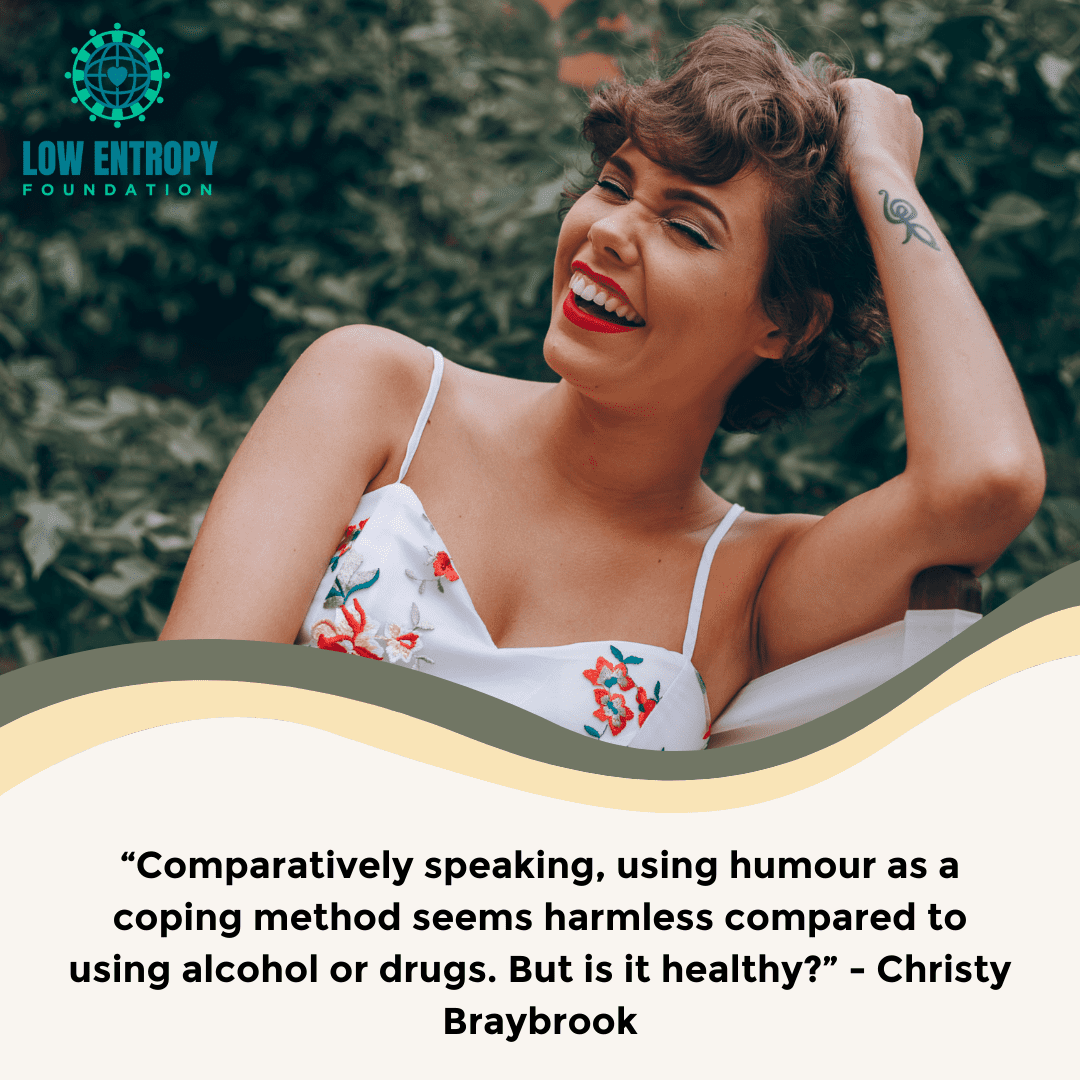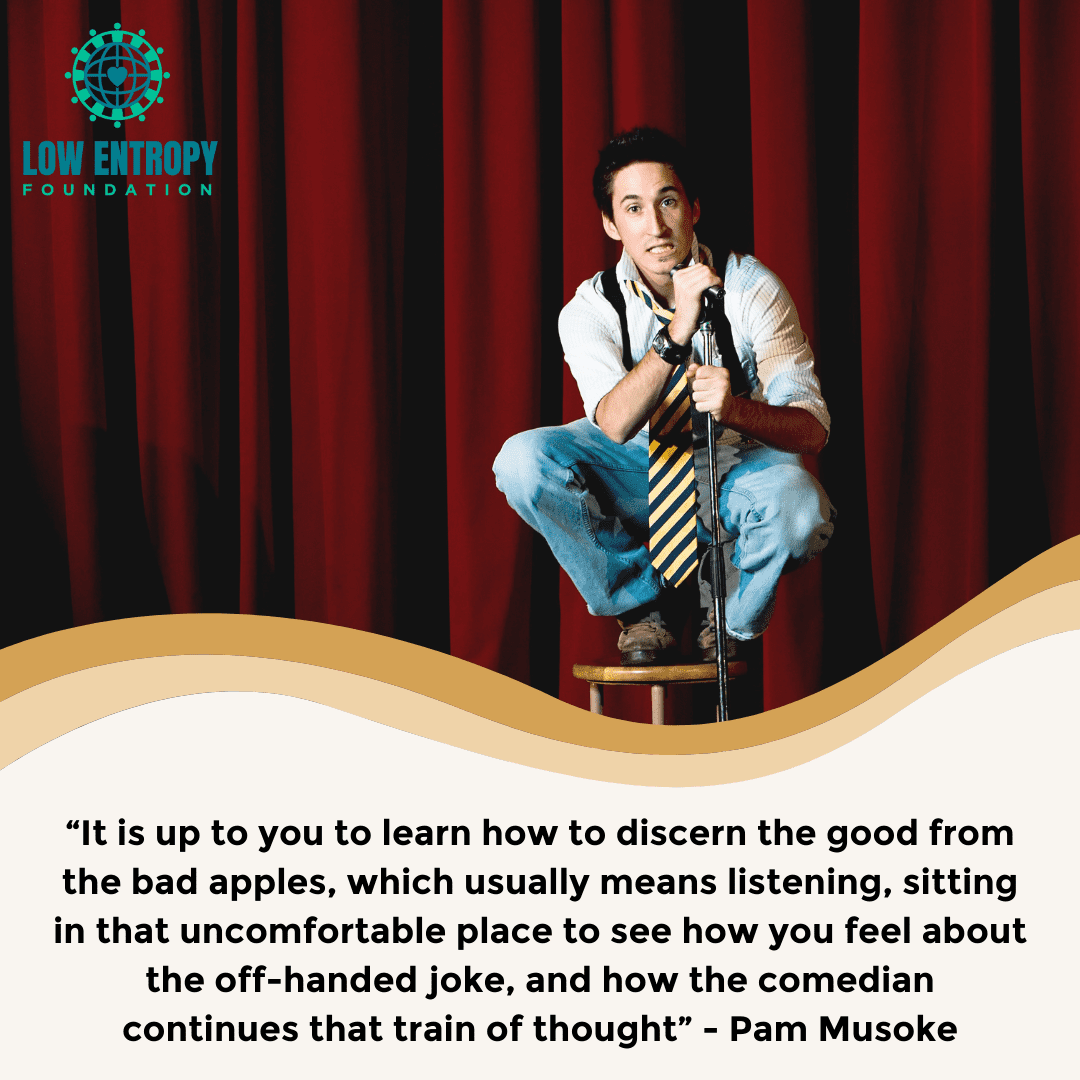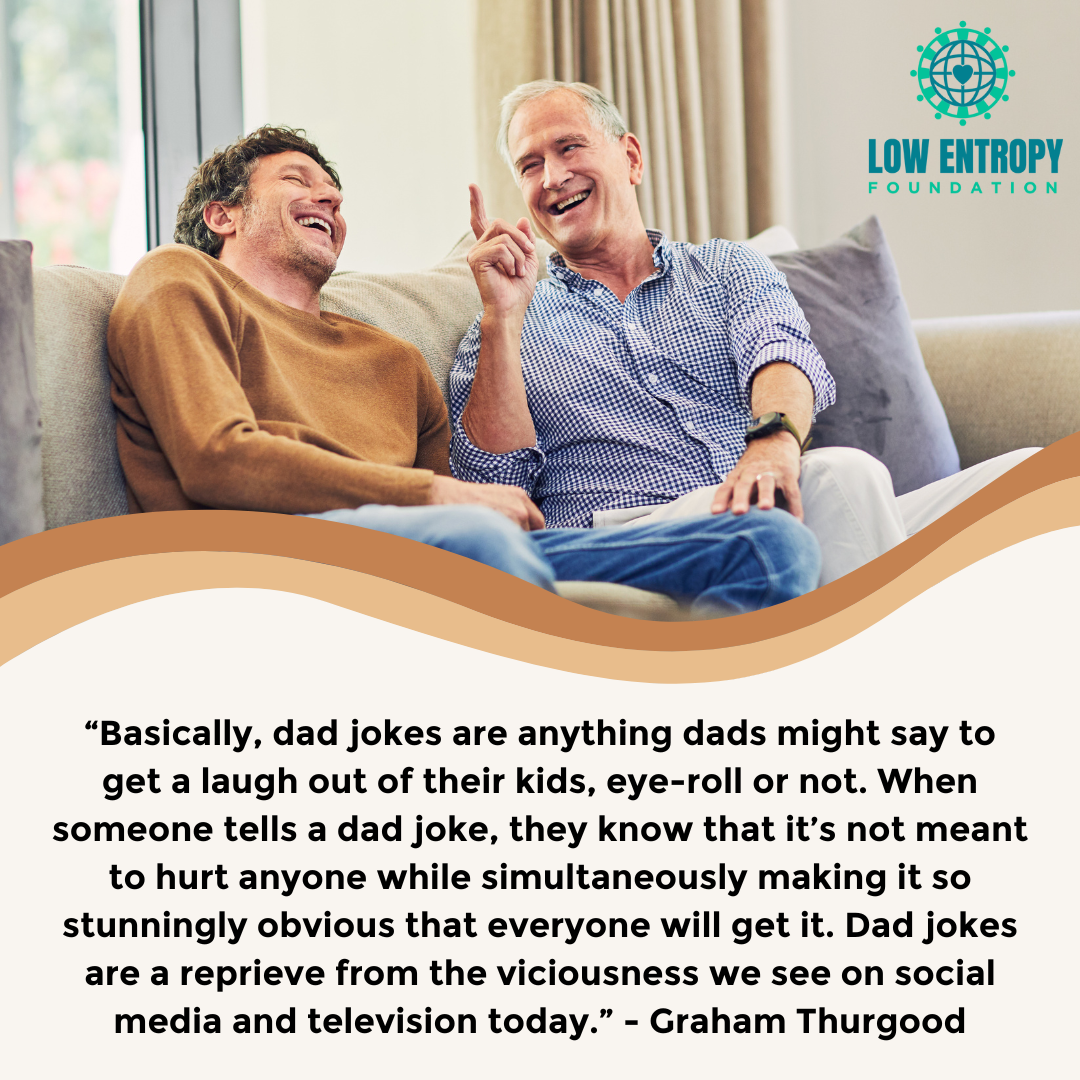Grace Cheng (she/her/hers), Low Entropy Volunteer Writer
Humour has an inexplicable power. Laughter and humour enhance the quality of life. Jokes and witty conversations can help you develop a closer relationship with the people around you. The happiness that comes from laughter is comparable to the joy that comes from the rain in the desert. The key elements of jokes are that they force the audience to consider the same situation from different perspectives.
Life is full of challenges but using humour and laughter to cope with stress can be a healthy and effective way to do so and can lift you from the darkest times. Indeed, we cannot always control what happens to us, but we can choose how we want to respond and react. We can use humour to effectively communicate with one another, leveling the playing field between the players on that field who may have different statuses, such as a boss and a direct report, or a child and a parent.
The use of humour can benefit our physical, mental, and spiritual well-being. It gives us a sense of power and superiority to be able to laugh at our situation or problem. A good sense of humour can help promote optimism and a positive outlook. When we can laugh at what is troubling us, we are less likely to experience feelings of depression or helplessness. A sense of humour provides us with a perspective on our problems. The act of laughing serves to release uncomfortable feelings that, when repressed, may create a biochemical shift that is harmful to one’s health.
A life without humour would be analogous to an ocean without fish. When we are babies, our mothers encourage us to smile and laugh. Since these are the earliest and most effective forms of communication, we are capable of learning at this early age.
Humour may also serve as an adaptive ego defense by enabling people to perceive and appreciate the absurdity of situations in which they have to confront a great deal of difficulty. A sense of humor may function as both a defense mechanism and a means of dealing with adversity.
Let us look at the benefits of using humour in our lives.
- Humour Can Improve Mood
Once you develop a good sense of humour, you become more lighthearted. As a result, you will see everything around you from a completely different perspective, and you will be able to laugh at problems that are enormous at the time but become the easiest things you have experienced. Laughter will undoubtedly improve any problem situation that appears not to be resolvable as soon as you change your approaches, attempt to seek out laughter, and relax following your chuckle.
- Humour Benefits Physical Health
Humour has the potential to benefit physical health in many ways, including endorphins and relaxation. The health benefits of laughing include lower blood pressure, improved immune system, pain relief, stimulated lungs and an increase in heart rate. This all decreases the risk of heart attacks as well as the possibility of becoming constantly ill during the colder months. It is scientifically proven that humor will help you relax and benefit your health overall if you are constantly exhausted because you are stressed out.
- Humour Relaxes Muscles and Tensions
When we are stressed, we tend to become tense and uncomfortable under the weight of the overwhelming burden. Your muscles will relax once you laugh, and any tension will be dissolved immediately. In the end, this leads to relaxation, which can provide relief from stressful days and prevent further health complications.
- Humour Acts as a Distraction
Humour is a good way to distract yourself. Your attention is diverted for a time to the larger joke that is occurring or to the comedy occurring to someone else. Humour can distract you from your stress and anxiety for a short time by taking your attention off what is happening to you. By using this distraction regularly, you can use this resource in your toolbox to cope during those times of stress and anxiety.
- Humour Changes Our Perspectives on Life
It is through the power of humor that we can view the world differently. Humour can make use of a little of one’s self-deprecation or mixes in some biting satire to make people laugh. It is simply crass slapstick humor that is in your face and blatant. Whatever the type of our humour, it can reframe our viewpoints and allow us to view our problems with a less all or nothing approach. When you reframe, re-author, or change the way you view your challenges, stress, anxiety and frustration disappear as you realize that they are not insurmountable.
- Humour Acts as Pharmacology
Humour causes a chemical reaction that has a powerful antithesis to anxiety and stress. By releasing certain feel-good chemicals within the brain, laughter activates neuropeptides, which are nature’s antidepressants. Interestingly, laughter has also been linked to a reduction in the stress hormone called cortisol. Humour therefore possesses a powerful anti-stress and anti-anxiety effect on the neuro-molecular level.
Are you ready to apply more humour to your life after learning their benefits?
—
Grace has an accounting and finance background. She enjoys reading, writing, listening to music, watching movies and playing sports.











